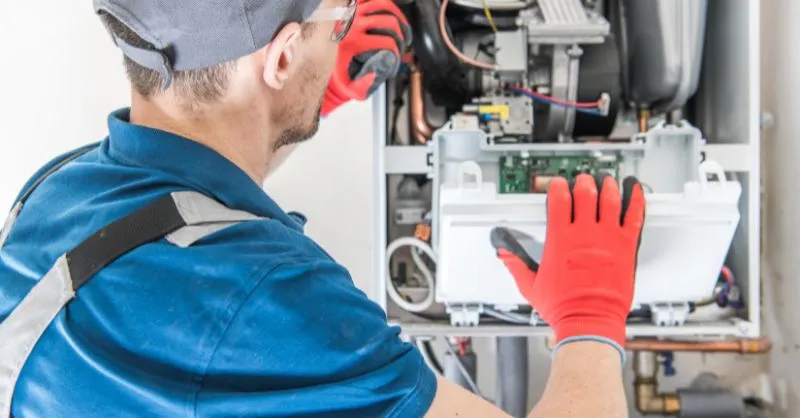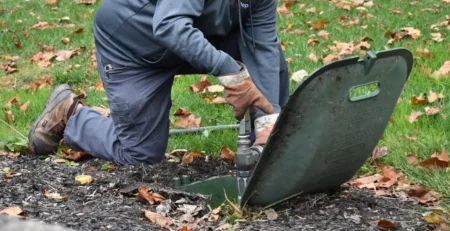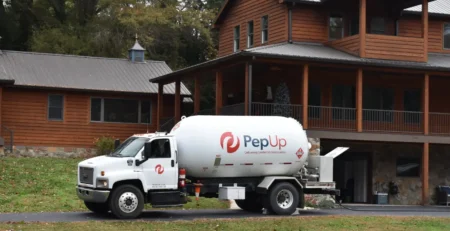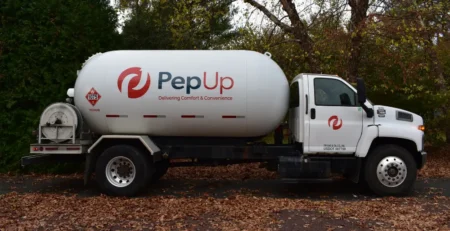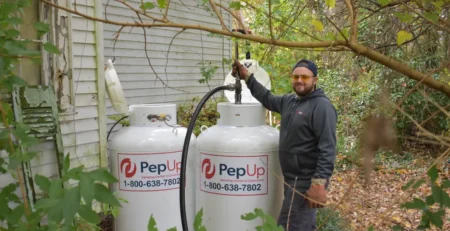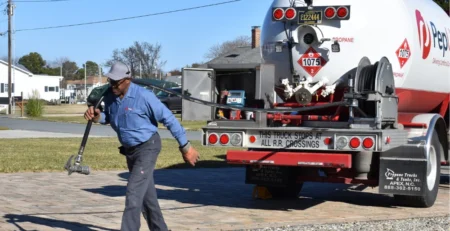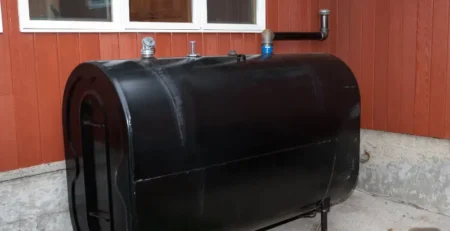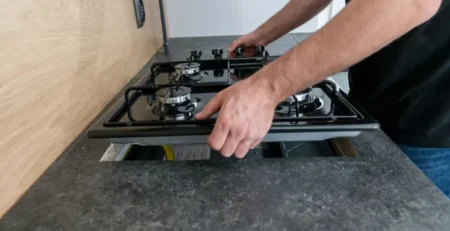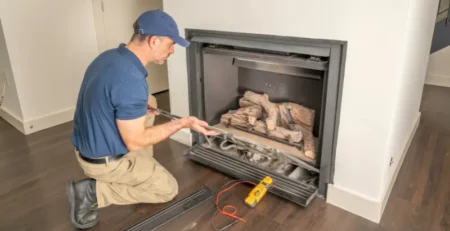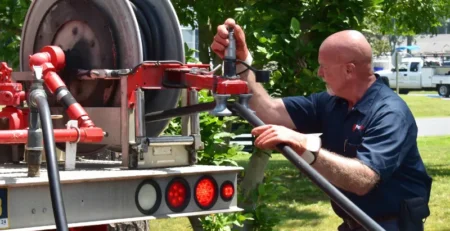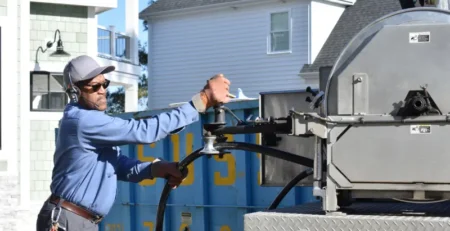Propane home furnaces: A 20-point selection checklist
Many of our heating oil customers are choosing to convert to propane home furnaces or boilers. If you’re in that camp, or if you have a propane heating system that will soon need to be replaced, we decided to do some research and provide you with a comprehensive checklist to use while you’re shopping.
Some items on the list may not apply to your home or geographic location, so remember to check on local regulations and call a PepUp Energy Specialist with any questions as you start considering replacing your propane home furnace.
Propane home furnaces: A 20-point shopping checklist
- BTU Rating: Ensure the furnace’s BTU rating matches your home’s heating needs for optimal comfort. This article about choosing the right fireplace insert includes some information about figuring BTU rating for square footage. Just look in the FAQ section at the bottom of the page.
- Efficiency (AFUE): Look for an Annual Fuel Utilization Efficiency (AFUE) above 90% for cost-effective heating. The higher the AFUE, the more efficient the furnace is.
- Climate Compatibility: Choose a furnace that performs well in humid, temperate climates typical of our region. Some furnaces and boilers feature dehumidifying effects, while others are known to add moisture into the home, according to some user reviews. Check out reviews from users in coastal regions to know how a specific furnace performs in a humid climate.
- Size of Your Home: Match furnace capacity to home size for efficient heating without overworking the system. Here’s a step-by-step guide and formula for determining what size furnace you’ll need to heat your home. Oversized furnaces are known to heat areas too quickly, and can waste heated air even when they’re not actively heating, so find a furnace that’s the right size for your space.
- Installation Costs: Consider contractor fees, ductwork, and any modifications needed for accurate budgeting. The most cost-effective installation will be replacing a propane home furnace with one of a similar size and dimensions, so make sure you ask any prospective installer about how size differences or other installation modifications will affect your installation price. Our favorite installers at Comfort Plus Services in Federalsburg can also help with the selection and purchase of home propane furnaces, and provide a straightforward estimate for installation.
- Heat Distribution: Check whether the furnace provides consistent heat distribution throughout your home. You can find some user reviews that are helpful when it comes to cold spots, efficiency, and even heating. Much of this performance factor depends on quality duct installation, so consider a duct inspection along with your installation to make sure you’re set up for even heating.
- Fuel Source Availability: Ensure a reliable and accessible propane supply to avoid heating disruptions. This guide for determining your home’s propane needs provides some detail around BTUs and propane consumption, so you can make sure your home’s propane tank is large enough to supply your new furnace with fuel.
- Brand Reputation: Research customer reviews and ratings for reliable brands known for quality and longevity. Ask your neighbors on Delmarva what home heating systems they use, and how they like them.
- Energy Star Certification: Look for Energy Star-certified models for better efficiency and environmental impact. Here’s a quick link to the Energy Star guide for home furnaces.
- Warranty and Service: Opt for models with long-term warranties and good service and support. It helps when you buy your furnace from the company that also installs it, so that the furnace and its installation are covered by the same company.
- Ease of Maintenance: Choose furnaces that users and technicians can easily maintain for hassle-free operation. The Propane Education and Research Council provides some insight into propane furnace benefits and resources for finding the best models for new construction, replacement, and retrofits.
- Noise Level: Opt for furnaces known for quiet operation to maintain household comfort. This factor is less important for home propane furnaces that will be installed in basements or enclosed and insulated utility closets, so prioritize noise only if you’ll be able to hear the unit running.
- Zoning Capabilities: Consider if the furnace supports zoning for customized heating in different areas. Here’s a guide to zoning from the Air Conditioning, Heating, and Refrigeration Institute (AHRI) if you want to learn more about this efficiency practice.
- Smart Thermostat Compatibility: Check if the furnace works with smart thermostats for advanced control. Smart thermostats can make it easy to control your home’s temperature remotely, which can come in handy if you’re away from home when a cold front blows in. It’s a feature we like to recommend to our customers who own vacation homes on the peninsula.
- Safety Features: Look for features like auto shutoff, robust safety sensors, and reliable emergency functions. Propane appliances produce carbon monoxide, so research the furnace you’re considering to make sure it has internal sensors, and of course you’ll want to install carbon monoxide detectors in your home as a backup.
- Weigh the Initial Cost vs. Long-Term Savings: Evaluate the balance between upfront costs and long-term energy savings. Propane home furnaces – especially new models – are so efficient that you may realize an immediate monthly savings that can eventually offset the cost of purchasing and installing a new unit. It may take months or years, so it’s a consideration for higher-cost furnaces.
- Professional Installation Requirements: Investigate whether specialized installation is necessary to avoid issues. The installation professionals at our subsidiary, Comfort Plus Services, can usually answer this question just by getting some detailed information about the model you’re considering and the one you currently have, but they may also want to see how your current furnace is installed before deciding how complex the work will be.
- Tax Credits and Rebates: Look for eligible local/federal incentives to offset initial investment. Explore Mid-Atlantic Propane Gas Association rebates and MAPDA Heating Oil rebates for Delaware, Maryland, and Virginia residents.
- Thermal Insulation: Ensure your home’s insulation is adequate to fully benefit from the furnace’s efficiency. A home energy audit from Energize Delaware costs just $50 (or $25 for qualifying residents) and includes a thorough home energy assessment and up to $250 in upgrades to help Delawareans reduce energy use. Your auditor should be able to use thermal tools to pinpoint where your home’s insulation could use some beefing up.
- Air Quality: Choose furnaces with advanced filtration systems to maintain optimal indoor air quality. Here’s more information about indoor air quality from the experts at Comfort Plus.
Before you buy a new propane furnace, call in backup
By taking each of the points we’ve outlined into account and using the resources in this checklist, you should be able to find a propane furnace that best suits your home’s heating needs and provides comfort throughout the colder months. For best results, call Comfort Plus or PepUp Energy Specialists to learn more details about your short list of propane home furnaces, their installation, and long-term performance and maintenance ratings. It never hurts to get a second or third opinion on an investment in your home comfort!

Meet Contributor and Ag Salesman, Jacob Abbott
Jacob was raised in the St. Michaels, Maryland area by a fourth-generation waterman and a registered nurse. He joined PepUp as an Agricultural Sales Rep in 2020. Jacob is also on the Board of Directors at the Delmarva Chicken Association, a member of the Delaware Farm Bureau, Maryland Farm Bureau, and of the Talbot County Watermen’s Association.

